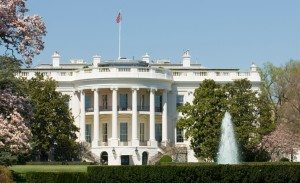 The Drug Quality and Security Act (DQSA), which focuses on compounding and a track-and-trace system, was signed into law last week by President Obama. A track-and-trace system, long sought by doctors, patient, and non-profit advocacy organizations, including CSIP, is designed to help authorities catch counterfeit or stolen pharmaceuticals that increasingly have been making their way into the U.S. by tracing them through the supply chain. The new law also seeks to make clearer how compounding pharmacies – which produce drugs on site – are regulated.
The Drug Quality and Security Act (DQSA), which focuses on compounding and a track-and-trace system, was signed into law last week by President Obama. A track-and-trace system, long sought by doctors, patient, and non-profit advocacy organizations, including CSIP, is designed to help authorities catch counterfeit or stolen pharmaceuticals that increasingly have been making their way into the U.S. by tracing them through the supply chain. The new law also seeks to make clearer how compounding pharmacies – which produce drugs on site – are regulated.
The most immediate effects of the law will occur as early as 2015 and others will take several more years to implement:
- The U.S. Food and Drug Administration (FDA) will be able to track what the registered pharmacies are making, receive reports about problems with any of the compounded drugs, and have the authority to conduct safety inspections.
- There will be a national registration/licensure standard for US wholesalers, repackagers, and third-party logistics providers. These licenses will build on already-existing state-level statutes. The formal date for licensure standards is two years after the bill becomes law, or November 2015.
- There will also be multiple reporting and coordinating requirements between the FDA and state boards of pharmacy; a national registry of licensed outsourcing facilities; and new labeling requirements for compounded products.
- Rather than a 2015 deadline to begin applying ID codes to pharma packages, the process will begin in 2017, and a full-blown electronic tracking system won’t be required until 2023.
- Large compounding pharmacies can now register with the FDA (but are not required to) and ask for operations to be inspected, however smaller firms will continue to be regulated by state boards. For those that do register, the FDA will be able to track their products.
Critics of the law question how the FDA will be able to identify rogue pharmacies if they are not required to register with the federal government. Proponents say the voluntary approach can succeed if doctors and hospitals choose only to do business with FDA-registered pharmacies.
Despite questions about the approach, the law enjoys broad support from medical professionals and industry leaders, in part because it contains separate requirements designed to track all prescription drugs throughout the U.S. supply chain.
Substandard and falsified medicines harm consumers. Given the extent of the problem, we at CSIP are encouraged that a new law regarding a national system of tracking and tracing pharmaceuticals has been passed, and hope it will be instrumental in combating rogue online pharmacies and keeping fake and substandard drugs out of the supply chain, and out of the hands of unsuspecting consumers.
####
The Center for Safe Internet Pharmacies (CSIP) and our 13 member companies have the shared goal of helping address the growing problem of consumer access to illegitimate pharmaceutical products on the Internet. Continue to read this blog for updates on CSIP’s education, enforcement and information-sharing efforts.

